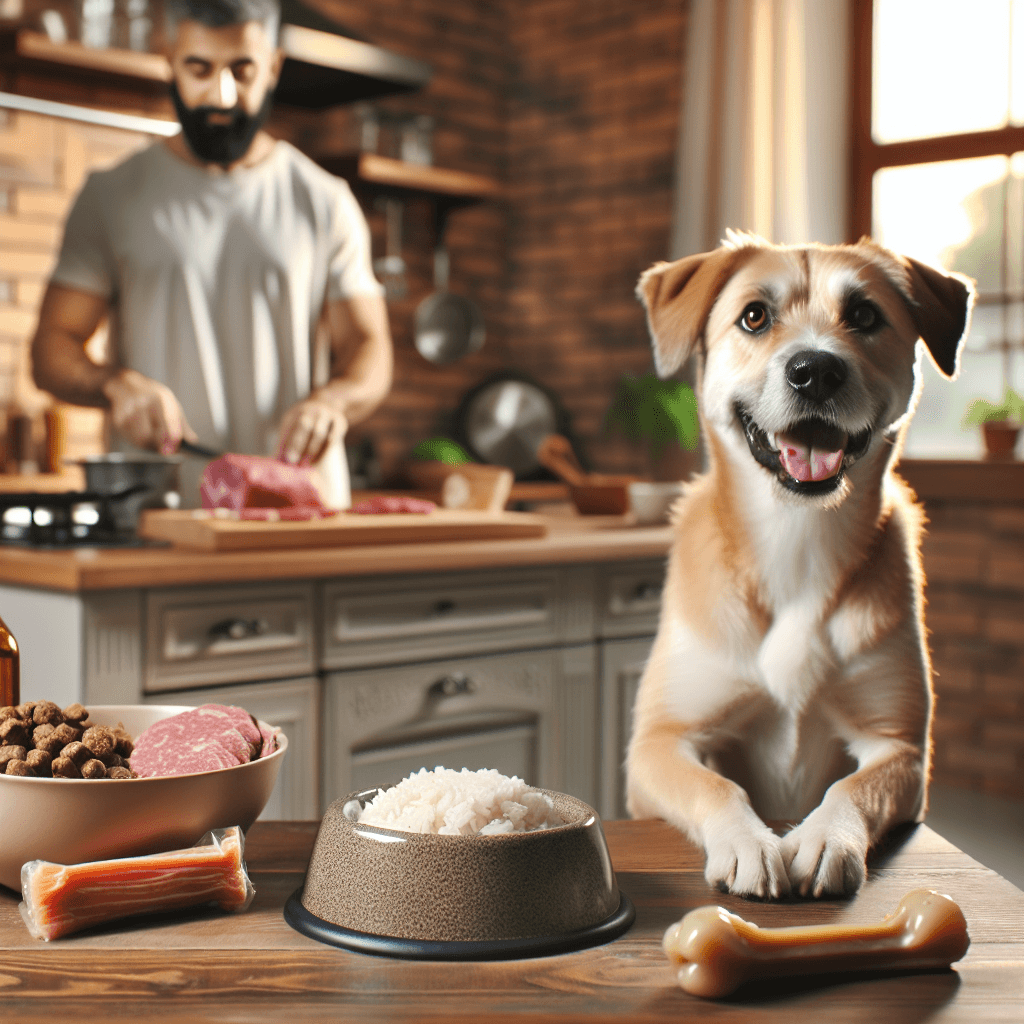The Safety and Benefits of Feeding Dogs Popcorn: A Guide to Healthy Snacking

The Health Benefits of Feeding Dogs Popcorn
- High Fiber Content: Plain popcorn, when given in moderation, can be a healthy snack for dogs due to its high fiber content. This fiber helps support the digestive system and promotes overall gut health.
- Digestion Aid: The insoluble fiber found in popcorn adds bulk to a dog’s diet, which can aid in maintaining regular bowel movements and preventing constipation. Regular consumption of fiber-rich foods like plain popcorn can help keep the digestive tract functioning properly.
- Satiety for Picky Eaters: Adding small amounts of plain popcorn to your dog’s diet can provide a feeling of fullness, making it an excellent choice for managing portion sizes or dealing with picky eaters. This can be particularly useful when trying to control calorie intake without resorting to less nutritious alternatives.
- Air-Popped Popcorn as the Best Option: Air-popped popcorn is the preferred choice because it does not contain added salt or butter, both of which are harmful to dogs. Salt can lead to sodium toxicity, while butter contains high levels of fat that can contribute to weight gain and other health issues in dogs.
- Avoiding Harmful Additives: It’s important to ensure that any popcorn fed to your dog is plain, air-popped, and free from additives such as salt or butter. These ingredients can pose significant risks to canine health if consumed regularly.
By incorporating these considerations into your dog’s diet, you can leverage the health benefits of popcorn without compromising their well-being.
The risks associated with feeding dogs kettle corn or caramel popcorn are significant and often overlooked by pet owners who may not fully understand the potential dangers. Kettle corn and caramel popcorn are popular snack foods that are high in sugar content, which can lead to serious health issues for dogs. For instance, excessive sugar consumption can trigger pancreatitis, a condition characterized by inflammation of the pancreas. Pancreatitis is painful and can result in severe digestive problems, leading to vomiting, diarrhea, dehydration, and even organ failure if left untreated.
Moreover, kettle corn and caramel popcorn often contain other harmful ingredients that are toxic to dogs. Chocolate, commonly used as a flavoring agent in these treats, is particularly dangerous. Theobromine and caffeine found in chocolate can cause hyperactivity, seizures, tremors, and even death in dogs due to their inability to metabolize these compounds effectively. Similarly, xylitol, an artificial sweetener frequently used in caramel popcorn, poses significant risks. Xylitol ingestion by dogs can lead to a sudden drop in blood sugar levels (hypoglycemia) and may also cause liver failure, making it a critical risk factor for canine health.
In summary, while kettle corn and caramel popcorn might seem harmless as occasional treats, their high sugar content and inclusion of toxic ingredients like chocolate and xylitol make them unsuitable for dogs. Pet owners should be vigilant about avoiding these snacks to ensure the long-term health and well-being of their furry companions.
Popcorn kernels pose a significant choking hazard for dogs, making it crucial to keep them away from these tiny treats. Unpopped popcorn kernels are particularly dangerous because they can easily get lodged in the throat or esophagus of your pet, leading to severe respiratory issues and potentially fatal consequences. The hard and brittle nature of the kernel means that even a small piece can cause damage if swallowed, leading to potential blockages in the digestive system.
To prevent such incidents, it is essential to monitor your dog closely when consuming popcorn, especially during movie nights or parties where popcorn might be present. If you do give your dog any popped popcorn as a treat, make sure all kernels are removed before offering them. Additionally, consider alternatives that are safer for dogs, like plain air-popped corn without salt.
In cases of accidental ingestion, it is important to watch for signs of distress such as difficulty breathing, gagging, or vomiting. If you suspect your dog has swallowed a kernel, seek veterinary attention immediately. Symptoms of an intestinal blockage can include lethargy, loss of appetite, and severe abdominal pain. Preventing these issues altogether by keeping unpopped kernels out of reach is the best course of action to ensure your furry friend’s safety.
The importance of feeding dogs popcorn in moderation cannot be overstated. While sharing human snacks with your furry friend might seem like a fun idea, it can have serious consequences if not managed properly. Excessive consumption of popcorn can lead to weight gain and digestive issues, both of which can negatively impact the overall health of your dog.
Firstly, when dogs consume too much popcorn, they are at risk of gaining excess weight. Just as with humans, a high-calorie diet without sufficient exercise can result in obesity. Obesity in dogs is associated with various health problems such as diabetes, joint issues, and heart disease. For instance, popcorn kernels and oil used in the cooking process add unnecessary calories to your dog’s meal. Regularly indulging them in this treat could lead to a gradual increase in their body weight, putting their health at risk.
Secondly, excessive consumption of popcorn can cause digestive issues. Dogs’ stomachs are not designed to handle large amounts of human food, especially those that contain artificial ingredients and preservatives. Popcorn can be difficult for dogs to digest due to its hard texture, which might result in indigestion or even blockages if the kernels get stuck in their system. Additionally, popcorn poppers often leave behind small pieces of corn and husk, which are not easily digestible by dogs and could cause irritation.
It is crucial to remember that treats should only make up 10% of a dog’s diet, with popcorn being no exception. This means that while you can occasionally offer your dog a piece or two of popcorn, it should never be a regular part of their meal plan. To maintain a balanced and healthy diet for your pet, it is recommended to keep treats to a minimum and focus on providing them with high-quality dog food that meets their nutritional needs.
In summary, while sharing popcorn with your dog might seem like a harmless act, overindulgence can lead to weight gain and digestive problems. By ensuring moderation in the amount of popcorn given to your pet and keeping treats within 10% of their diet, you can help maintain their overall health and well-being.
Popcorn has emerged as a popular and nutritious snack option for health-conscious individuals, offering several benefits that make it an excellent choice for those seeking to manage their weight while enjoying a treat.
- Low-Calorie Snack: Popcorn is inherently low in calories when prepared without excessive butter or added sugars. A cup of air-popped popcorn typically contains around 31 calories, making it an ideal snack for individuals looking to control their calorie intake. This low-calorie content allows people to enjoy a satisfying snack while staying within their dietary goals.
- Aid in Digestion: Popcorn is rich in fiber, particularly when popped with the hulls intact. The presence of whole grains and fiber can significantly aid digestive health by promoting regularity and preventing constipation. Fiber also helps to create a feeling of fullness, which can reduce overall calorie consumption throughout the day.
- Weight Management: By incorporating popcorn into one’s diet, individuals can enhance their efforts towards weight management. The combination of low calories and high fiber content makes it easier to maintain or achieve a healthy body weight. Moreover, the satisfying texture and taste of popcorn can help curb cravings for more substantial treats, making it an effective tool in maintaining a balanced diet.
- Additional Nutritional Benefits: Beyond just its caloric and fiber content, popcorn also provides other essential nutrients. It is a good source of antioxidants like polyphenols, which are beneficial for overall health. Additionally, the whole grains in popcorn contribute to a well-rounded nutritional profile that supports various bodily functions.
In summary, popcorn stands out as a healthy treat option due to its low-calorie nature and high fiber content, making it an effective choice for individuals focused on weight management and digestive health. By integrating this snack into their diet, people can enjoy tasty treats without compromising their health goals.
When considering feeding your dog popcorn, it is crucial to take certain precautions due to the potential risks associated with this human snack. First and foremost, some dogs may develop allergies or sensitivities to popcorn, which can lead to digestive issues such as upset stomachs, vomiting, or diarrhea. These reactions occur because dogs have different dietary needs compared to humans, and their digestive systems are not always equipped to handle certain foods without adverse effects.
To minimize the risk of an allergic reaction or sensitivity, it is essential to introduce new foods gradually and in small amounts. This approach allows your dog’s body to adjust slowly, giving any potential reactions time to manifest if they occur. By starting with a tiny piece of popcorn and observing your pet for signs of distress over several hours, you can better gauge whether this snack might be suitable for your furry friend.
In summary, introducing popcorn as part of your dog’s diet requires careful consideration due to the possibility of allergic or sensitivity reactions. Always proceed cautiously by feeding small amounts initially and monitoring your dog closely. This approach not only ensures their safety but also helps in determining if popcorn can be a safe treat for them.
Tips for Safely Incorporating Popcorn into Your Dog’s Diet
When considering sharing a treat with your furry friend, it’s essential to choose safe and healthy options that won’t harm their health. One popular human snack that can be occasionally included in your dog’s diet is popcorn. However, not all types of popcorn are suitable for canine consumption. Here are some key points to keep in mind:
- Air-Popped Popcorn is the Safest Option: Air-popping is a healthier method as it requires no added oils or fats. This means that the only ingredient your dog will consume is popped corn kernels, which are generally safe when given in moderation.
- Avoid Adding Salt, Butter, or Other Seasonings: While these seasonings might make popcorn more enjoyable for you, they can be harmful to your dog’s health. Excessive salt can lead to sodium poisoning, which can cause vomiting and diarrhea, while butter contains high levels of fat that can upset your pet’s digestive system.
By sticking to air-popped popcorn without any added extras, you can enjoy sharing this tasty treat with your dog safely. Just remember to offer it in small amounts as a special treat rather than a regular part of their diet. Always consult with your veterinarian before making significant changes to your dog’s diet to ensure that the food is appropriate for their specific needs and health conditions.
Feeding dogs too much popcorn is a common mistake pet owners often make, leading to several health issues for their furry friends. Excessive consumption of popcorn can contribute significantly to weight gain, putting unnecessary strain on the dog’s digestive system and overall health. Here are some key points to consider:
- Weight Gain: Popcorn, especially when heavily salted or buttered, is high in calories. Overfeeding your dog with such popcorn can lead to obesity, which poses serious risks including joint problems, diabetes, and heart disease. Maintaining a healthy weight is crucial for the longevity of your pet.
- Digestive Issues: Dogs’ digestive systems are not equipped to handle human foods like popcorn effectively. The kernels can be difficult for them to digest, potentially leading to gastrointestinal blockages or upset stomachs. Signs of digestive issues include vomiting, diarrhea, and loss of appetite.
- Pancreatitis Risk: Overfeeding a dog with popcorn increases the risk of pancreatitis. This condition occurs when the pancreas becomes inflamed due to excessive fat consumption. Symptoms can range from mild discomfort to severe pain and could require immediate veterinary attention if left untreated.
In summary, while sharing human snacks like popcorn might seem harmless, it’s essential to be mindful of how much you feed your dog. Stick to small, occasional treats specifically designed for dogs or consult with a veterinarian before introducing any new food items into their diet. By avoiding these common mistakes, you can help ensure that your pet remains healthy and happy.




